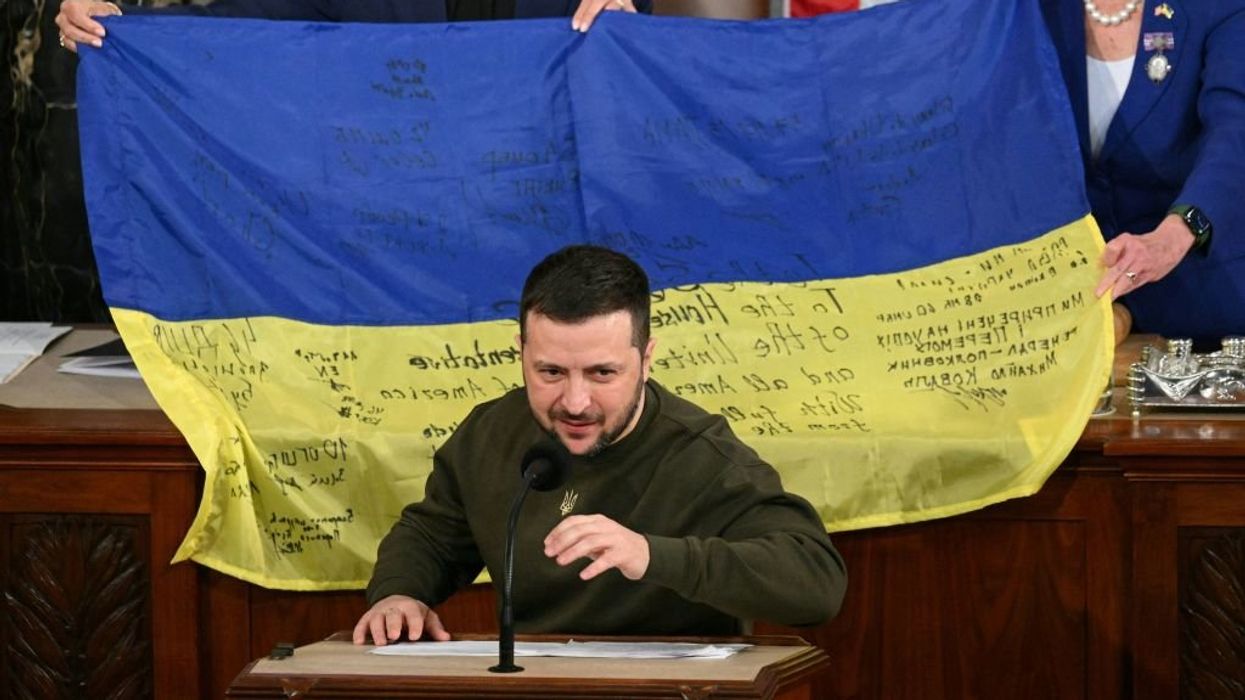
MANDEL NGAN/AFP via Getty Images

A large portion of the U.S. government's fiscal year 2023 Disaster Relief Fund spending is going toward COVID-19 expenditures, according to the latest monthly report, which also indicates that the fund is expected to be more than $8 billion under water by the end of September
While a proposed Department of Homeland Security fiscal year 2024 appropriations bill would allocate more than $20 billion toward the Disaster Relief Fund, even if Congress were to eventually approve that money, the fund could already be in the hole by that point.
Some legislators have already proposed addressing the issue by providing $11.5 billion in supplemental funding for the Disaster Relief Fund.
But if Congress pursues supplemental disaster relief funding, there is a possibility that rather than passing a clean measure, some lawmakers could seek to tack on other spending priorities as well.
"I think there's a lot of different people who have a lot of different ideas for a supplemental," Democratic Sen. Christopher Murphy of Connecticut said, according to Roll Call. "Generally, we find a way to come together around disaster supplementals, but certainly if there is something moving, people will have different ideas of what should go on it."
"I think there's no doubt we're going to have to do a disaster supplemental, unless this is the one year with no natural disasters. And I don't think there's much doubt we're going to do a Ukraine supplemental as well," Democratic Sen. Brian Schatz of Hawaii said, NBC News reported last month.
While Americans have been deeply divided over whether the U.S. should be doling out billions of dollars' worth of aid to assist Ukraine as it seeks to defend itself against a Russian invasion, Congress, which has already shelled out big bucks to help the beleaguered country, appears poised to pursue a supplemental spending measure to pump even more U.S. aid into the embattled Eastern European nation.
Earlier this year, just ahead of the Senate's passage of a debt ceiling deal, Senate Majority Leader Chuck Schumer (D-N.Y.) said that the deal did not "limit the Senate's ability to appropriate emergency supplemental funds to ensure our military capabilities are sufficient to deter China, Russia, and our other adversaries, and respond to ... national security threats, including Russia's evil, ongoing war of aggression against Ukraine." Schumer went on to say that the Senate would not be limited in approving emergency supplemental funding for national concerns such as disaster relief.
The Senate's version of the "National Defense Authorization Act for Fiscal Year 2024" includes a section expressing the "sense of the Senate that" there is a need for supplemental funding for Ukraine and other matters.
"It is the sense of the Senate that ... there are growing national security concerns that require additional funds beyond the revised security spending limit, to include continued support to the Ukrainian armed forces," the text declares, adding that "the President should expeditiously send emergency funding requests to the Senate for consideration so that those needs can receive sufficient and additional funds."
The GOP is divided on the issue of whether to continue shoveling taxpayer dollars into Ukraine, which means that if Congress were to package supplemental funding for U.S. disaster relief with supplemental Ukraine aid, that could put some lawmakers in a precarious political position: either reject the measure and consequently vote against disaster relief funding, or support the measure and thereby vote in favor of Ukraine aid.
Political watchers can keep their eyes peeled to see how Congress ultimately opts to handle the Disaster Relief Fund issue and whether lawmakers seek to push through supplemental funding for Ukraine.
Like Blaze News? Bypass the censors, sign up for our newsletters, and get stories like this direct to your inbox. Sign up here!